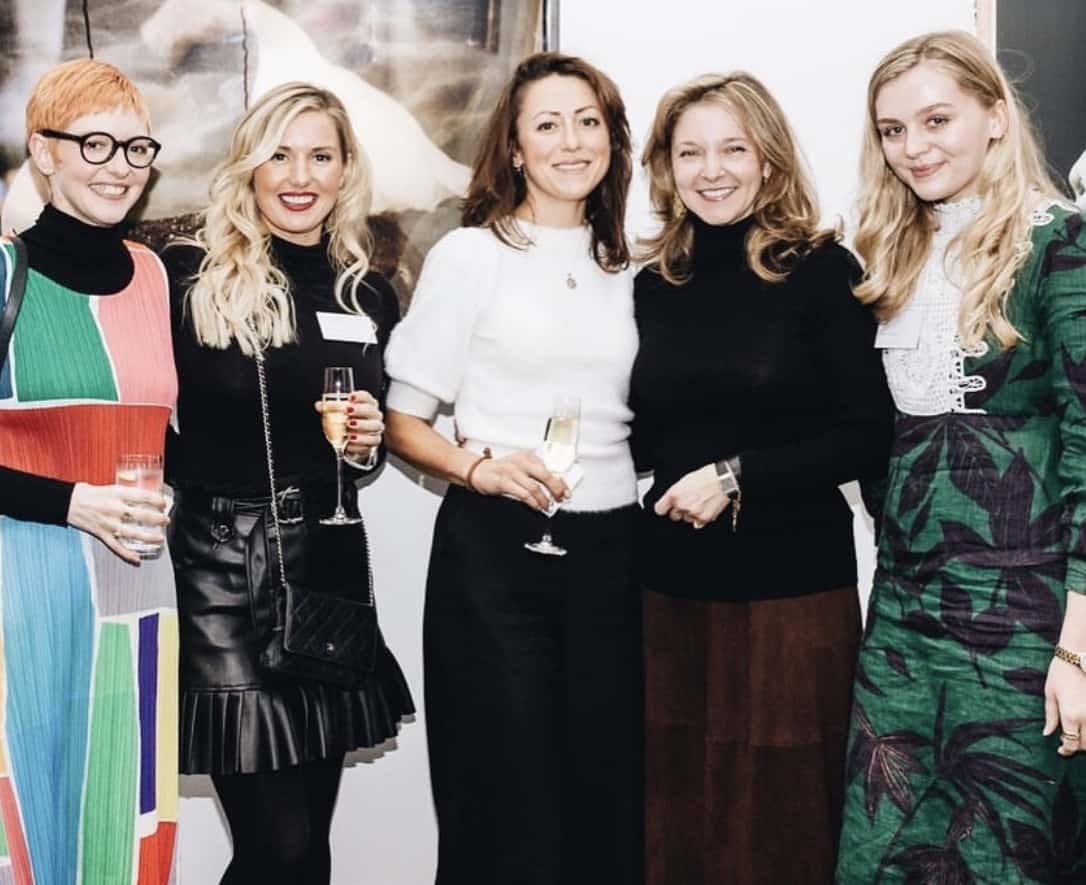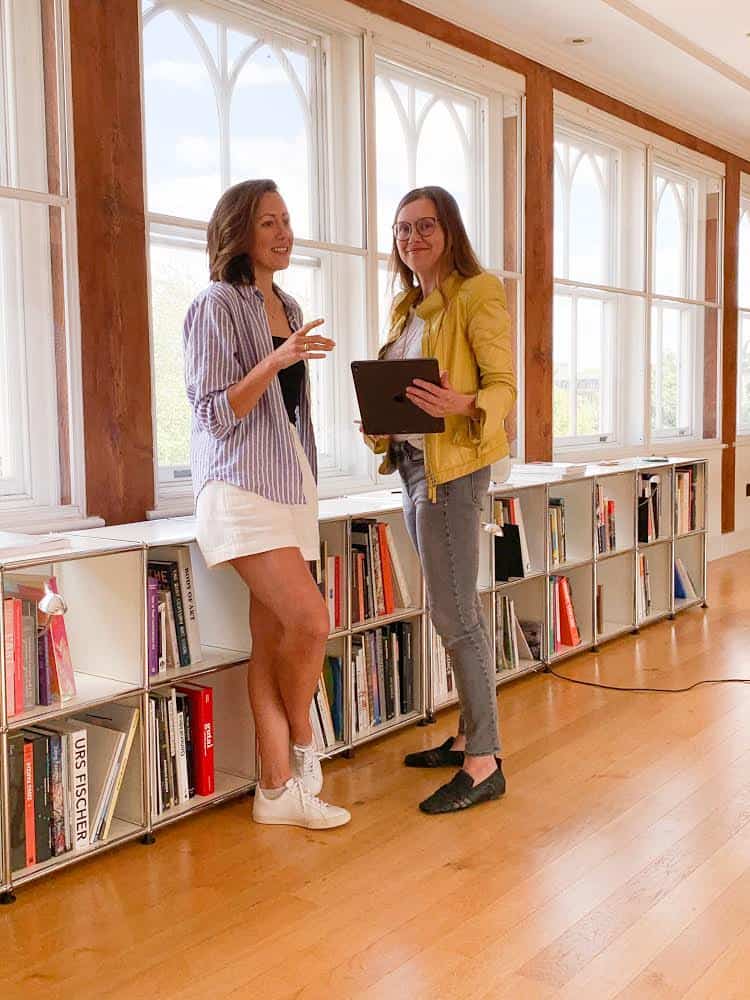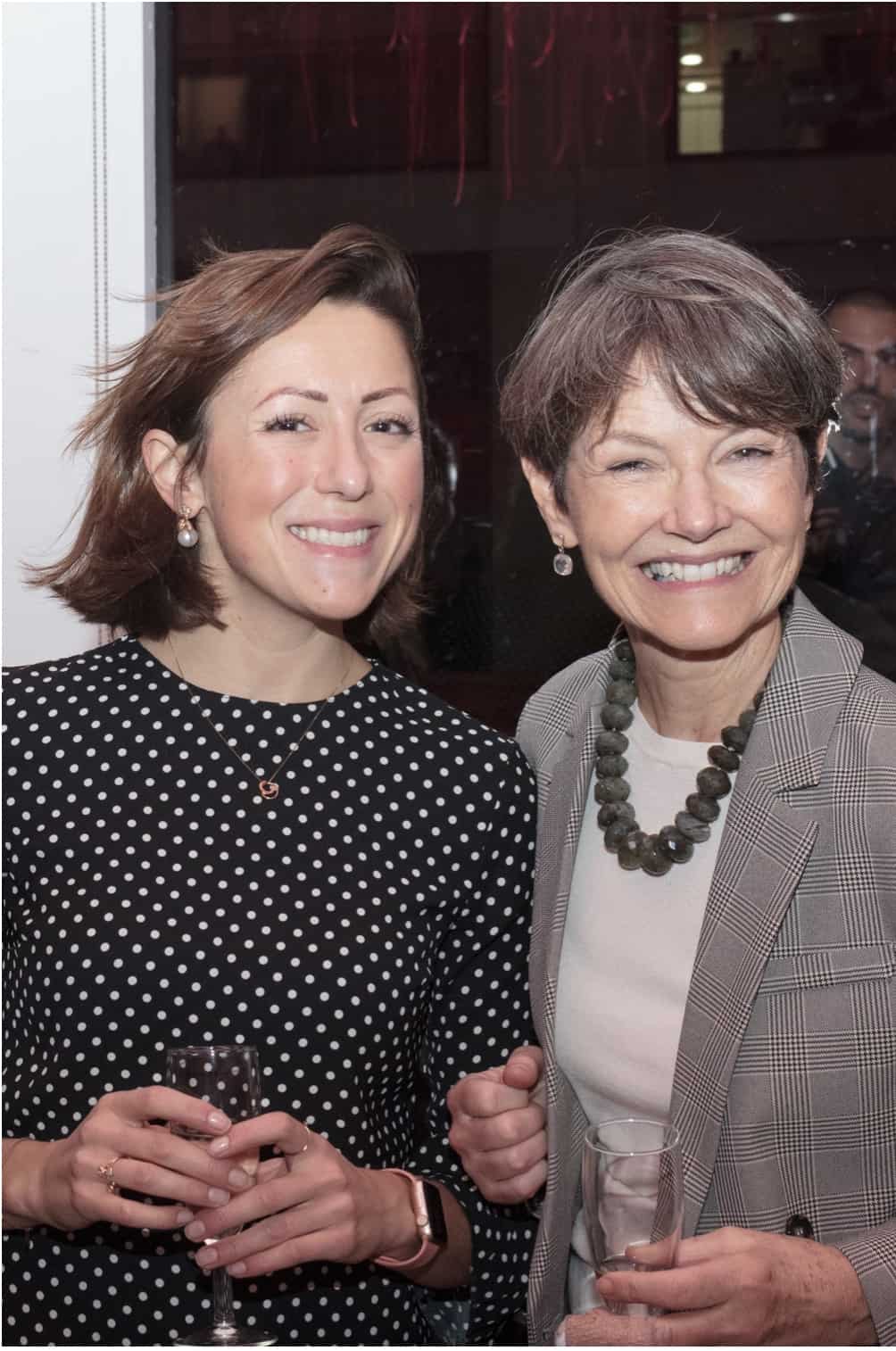In this series of interviews, we ask art professionals about their jobs and career after graduation. No matter where you live, to find a job after a humanities degree is not an easy thing. We try to find out what the term “perfect job” means to the people we talk to. This time we speak to Kami Naglik – Senior Patrons Manager at the Royal Academy of Arts who has obtained two MAs in History of Art and Linguistics from Universities in Poland and Madrid. With her knowledge of 5 languages, she had worked for international auction houses, Sotheby’s and Christie’s, across their Madrid, London and New York locations in a number of roles, including cataloguer, art collections manager and client liaison. Subsequently, she joined the Development team at Tate Modern, focusing on international acquisitions. At the beginning of 2020, Kami moved to the Royal Academy of Arts to further develop their international supportership, taking care of different groups of patrons and various fundraising initiatives.
Among Kami’s tips for people that aspire to work in an art institution are: keep the open mind and learning attitude, think strategically and look out for opportunities. When pondering your next move, consider potential trajectories it might initiate and jobs further down the line. Nurture your network, always ensuring the high quality and integrity of your work. Imagine, be proactive and enjoy!
Position: Senior Patrons Manager at the Royal Academy of Arts
Location: London
SK: Could you describe your position, duties, responsibilities?
KN: I currently take care of the top tier of patrons who support the Royal Academy of Arts in London. This special group – aka International Circle (IC) – is composed of seasoned philanthropists and art collectors of different backgrounds and trajectories. I work closely with the RA’s team to devise a programme of events for patrons. But primarily, I act as the key point of contact for the IC to ensure their bespoke engagement, and to match their interests and passions with a suitable initiative. Over the years, their collective contribution has proved critical to enabling some of the RA’s most memorable exhibitions.
SK: What were your beginnings like?
KN: I earned a MA in History of Art and MA in Linguistics; I initially enrolled at the Jagiellonian University in Poland and then left on scholarship to continue my studies in Madrid, given my focus at the time was Spanish art and language. In my last year of Uni, when writing my dissertation, encouraged by my tutor, I walked into Sotheby’s office in Madrid and asked if they would take me on as a summer intern… and they did.
SK: What pushed you to become Senior Patrons Manager at the RA in London?
KN: As a people person and skilled researcher, I did very well at Sotheby’s Madrid and they offered me another internship in London. Moving to the HQ was definitely one of the major shifts in my career (smile). Where I am now, seems like a consequence of having gathered various experiences in different roles as well as having developed new interests alongside. As many recent graduates in HoA, I thought of specializing in a specific field but quickly realised my curiosity extended over various categories. While in auction houses, I absolutely loved handling amazing artworks first-hand; and throughout my career, working closely with art collectors, getting to know their motivations and ambitions, has been very inspiring and surely led me to further pursue this trajectory.
SK: How long have you been preparing for this job?
KN: Once in the job market, I don’t think you are preparing as such but rather trying to assess what you have learnt so far and what’s next that you want to learn. I have particularly enjoyed navigating across different roles, companies and sectors and has felt that each of these experiences could then be leveraged in a new position. I feel strongly about innovation and creativity, and this so far has been my way to make the most of my multifaceted exposure.
SK: How has your education prepared you for your career?
KN: Looking back, I would say that my two MAs definitely equipped me with some very helpful skills – languages, research, mindset etc. However, I don’t think one’s profession should be seen as a direct and logical extension of one’s education… (although that’s what I had thought at the beginning). Now, I like to think of higher education as a great exercise for the brain that works for some, but not necessarily for all. Also, it could be a good way to take time in search of one’s vocation. But equally, it poses a danger of self-pigeonholing… Nowadays, interestingly, when you think of amazing business people, most of them would have dropped out of school to pursue their ideas independently…
SK: What was the most important skill which let you to become Senior Patrons Manager?
KN: Curiosity as a driver, adaptability as a disposition and interest in people as a passion. Being a people person has allowed me to build solid and long-standing relationships with some of the key stakeholders in my companies as well as with some of the top clients. It is the network you build in any role that allows you to enhance your performance and bring value to the business. Naturally, constantly learning as you go, adding on to your education and work experience has to come hand in hand. Knowing what questions, when and whom to ask is key.
SK: What is the riskiest decision you had to take?
KN: I believe that the world is constantly changing; the financial crisis of 2008 was one of the pivotal moments and I entered the job market shortly after. Generically speaking, I think it is risky to bank on that the status quo will remain. One could argue that moving to London without knowing anyone and without a proper job offer was risky, or later on that leaving Sotheby’s for the non-profit sector too, but it has a lot to do with timing, your strategy, goals and principles. While all these evolve as we grow professionally and personally, I would say that ‘risky’ would be not to have any plan…fortunately, I have always had one (or more) (smile).
SK: What has been the most difficult task you undertook so far?
KN: For instance, while at Sotheby’s I managed a number of art collections for some of the top and very demanding clients. The sheer volume of artworks and locations around the world to inventorize, the complex legal and logistical framework, diverse personalities and teams involved, multifaceted strategy and on-going deadlines definitely made my job at the time a steep learning curve. Later on, while at Tate, I managed the museum’s partnership with the MCA in Australia, supported by Qantas airlines and similarly, handling the cross-continental discussions around collecting strategies of these two prominent institutions and at the same time reporting back to the sponsor, and coordinating marketing activities did teach me a lot.
SK: What was your biggest setback, failure, or defeat?
KN: I don’t believe in setbacks or failures, everything is a learning opportunity and down to one’s approach, mindset and focus. I do however feel stuck occasionally, (which I don’t particularly enjoy), but yet again, the question is what I am going to learn from the given situation, how to read the signs, adapt my strategy… and perhaps practice patience.
SK: What do you consider to be your biggest success?
KN: I often describe myself as delusionally positive.(smile). In line with previous answers, I would be inclined to describe one’s mindset as successful or not, not necessarily specific events. In which case, sticking with my vision of working abroad for an international company within the art world, was a daring vision and I am glad that my courage, motivation and adaptability made me stick with it despite the number of challenges along the way…
SK: What three tips would you give someone who wants to become Senior Patrons Manager?
KN: I would encourage those entering the job market to give it some thought to their beliefs, goals and ambitions prior – what contribution to the world they would like to make, no matter how far reaching it might seem at the time. Then, keeping this in mind, to try to assess where, in what role one could have the greatest impact and or learn essential skills for the job to come. Alongside, ensuring high quality and integrity of your work is also key. The art world is very much network and reputation based, and person to person referrals can open up opportunities.
SK: Are you satisfied with your current position? Would you like to change something in your career?
KN: Very much so. I love the variety of people I am interacting with, and the very mission of the RA with its Arts Schools and rich programme of exhibitions and cultural events. I thrive on change and always look for opportunities to be creative. Perhaps, the silver lining of the pandemic will be some extra – and in fact necessary – scope for innovation in the arts sector, within development and beyond.
SK: If not Senior Patrons Manager, what would be your dream job?
KN: I am an entrepreneur at heart and get excited when funding meets a creative project with a significant economic and social impact. With this in mind, I hope I will get the chance to work with ambitious investors, philanthropists and entrepreneurs on a more individual basis and on long-term projects, within the cultural sector and beyond. Or perhaps even launch a business venture myself (smile).

The article was created thanks to the Arts Council Emergency Response Fund: for organisations (non NPO). Contemporary Lynx organisation is supported by Arts Council England.















